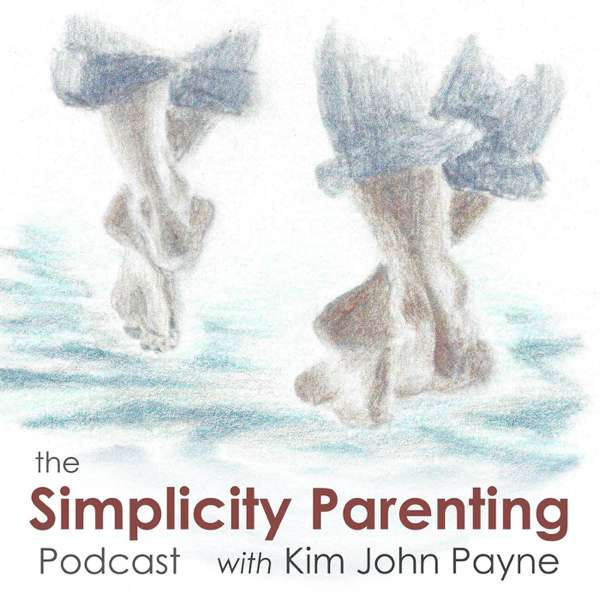In this episode, Kimberly interviews Donna Jackson Nakawaza about her latest book "Girls on the Brink: Helping Our Daughters Thrive in an Era of Increased Anxiety, Depression, and Social Media." Donna's book explains recent research behind the increase of significant mental health issues among girls and young women. Whereas neuroscience research only ever examined male brains and bodies, this book overviews recent research on females and how feelings of unsafety, threat, high expectations, and algorithms on social media heavily contribute to this increase. They unpack the ways in which the female brain stress responses are connected to immunity and overall well-being, as well as the myriad stressors young girls in particular face today. Last, they discuss strategies for parents to create a sense of connection, attunement, and safety with their children to mitigate these environmental and cultural stressors.
Bio
Donna Jackson Nakazawa is an award-winning journalist and internationally-recognized speaker whose work explores the intersection of neuroscience, immunology, and human emotion. Her mission is to translate emerging science in ways that help those with chronic conditions find healing. Her writing has been published in Wired, The Boston Globe, Stat, The Washington Post, Health Affairs, Aeon, More, Parenting, AARP Magazine, Glamour, and elsewhere. For her reporting on health-science, Donna received the AESKU lifetime achievement award and the National Health Information Award. She has appeared on The Today Show, National Public Radio, NBC News, and ABC News. Her latest book, "Girls on the Brink: Helping Our Daughters Thrive in an Era of Increased Anxiety, Depression, and Social Media" (Random House/Harmony, 2022) is available for order wherever books are sold.
What She Shares:
–Increasing rates of major depression in girls
–Female biology as super-powers
–Girls experiencing cognitive dissonance and perpetual unsafety
–Social media impact on adolescence and maturity
–Parenting strategies for connection, attunement, and safety
What You'll Hear:
–1 out of 3 girls exhibit major depression
–Recent increasing rates of major depression in girls
–Suffering from guilt, fatigue, unworthiness, hopelessness
–Suicide rate rising 51% among girls
–Only recently NIH requested neuroscience on female brains
–Significant differences in way stress impacts female body and brain
–Lack of research on trans and non-binary individuals
–Need to hear and know science to galvanize change
–Female sex differences used against women throughout history
–Unmitigated chronic stress and sense of unsafety
–X&Y chromosome differences regarding immunity
–X chromosomes provide extra protection in placenta
–Male babies more likely to have health issues
–Vulnerability of immunity shifts with increasing estrogen during puberty
–Estrogen master-regulator in body of neurons
–Women 3-5x more likely to have auto-immune diseases
–Estrogen evolutionary advantage but flips with stressors in environment
–Social and emotional stress
–Estrogen increases stress response versus testosterone
–Girls born 1995 or later demonstrate major drop in mental health
–Trends of social media algorithms connect to mental health decline
–Social media mimicking tribes but generating negative activity and isolation
–High activity and high emotion in social media
–Social media activates dopamine (reward circuitry) repeatedly
–High health-risk behaviors from other teens of images on social media
–Big emotions overtime turns off 'be careful' filters for teens
–Prioritizing deep connections with real world individuals vs. digital
–Girls more likely to be criticized on social media for appearance
–More sexualized increase of girls with social media
–Over-medicating adolescents
–Girls caught in a state of cognitive dissonance between gendered sexist messages
–Lowering puberty ages throughout history
–Removal of in-between years of maturity, growth, self-interests
–Hierarchical valuative list of benchmarks for girls to achieve
–How can girls develop senses of selves in this culture
–Recreating connection, attachment, and bio-synchronicity with our children
–Being grounded and regulated to offer sense of safety for our children
–Brains rewiring before adolescence (used to happen later)
–Brains remodel on sense of unsafety before puberty
–Creating connection, mattering, and belonging that is bigger than the world
–Children flourish in safety and connection with parents
–Parents to talk less and listen more
–Younger generation needs adult help more than ever to articulate feelings
–Wondering aloud with our children to develop their interior selves
Resources
Website: https://donnajacksonnakazawa.com/
IG: @donnajacksonnakazawa
And you can sign up for the upcoming MotherCircle Waiting List here:
https://kimberlyannjohnson.com/mothercircle/

 Our TOPPODCAST Picks
Our TOPPODCAST Picks  Stay Connected
Stay Connected







